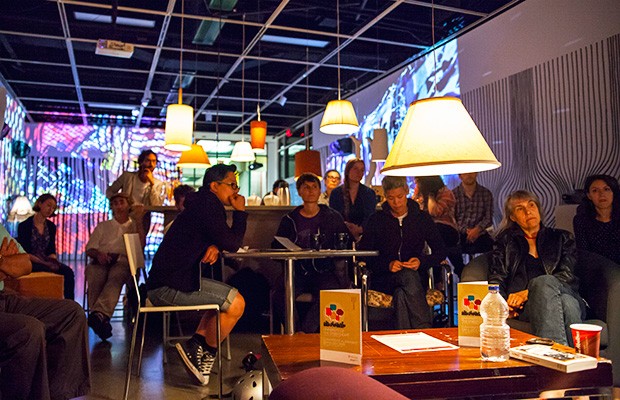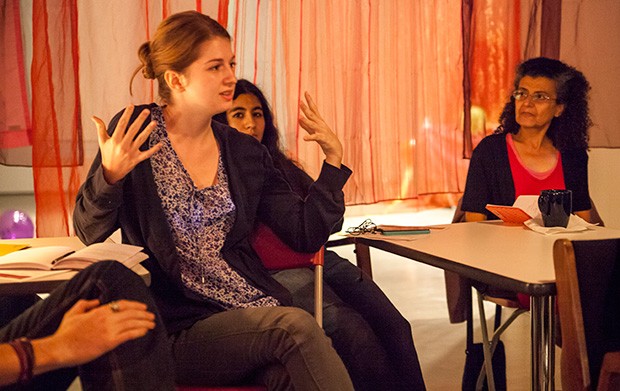A place for all Montrealers to listen, learn and be heard
On a recent Wednesday evening, 40 people turned up at Concordia’s Leonard and Bina Ellen Art Gallery to discuss identity in Quebec society. The event was the first of 13 University of the Streets Café public conversations happening this fall in various locations around the city.
The conversation series, organized by Concordia’s Office of Community Engagement, aims to create a public space for lifelong learning and encourage dialogue around current issues. Over the last 10 years, the University of the Streets Café has hosted more than 375 conversations.
The invited speaker at this year’s first event was Sherry Simon, a professor in Concordia’s Département d’études françaises. She argued that Quebec is much more culturally and linguistically mixed than it’s often portrayed as in the media and elsewhere.
"When I looked around my neighbourhood, who was English? Who was French? We all spoke both languages, and you'd hear many other languages on the street. I became aware of this incredible disconnect between what you actually saw on the street and what you were hearing in terms of the discourse of identity in Quebec.”
After Simon’s comments, moderator Jimmy Ung invited people to share their own opinions and experiences. One man insisted that Quebec is suffering from a crisis of identity and that there are real divisions. “There are many people who absolutely like the idea of what the Charter of Secular Values is all about, and this way of looking at Quebec society — that the goal is to have a single culture,” he said.
Another attendee described her struggles growing up in an Asian family in the Saguenay-Lac-Saint-Jean region. "At home, we only spoke Cantonese. I went to an English school, and then on the streets, it was obviously French. I remember never knowing how to fit in." Things improved after she moved to Montreal, but it was still a struggle to find her place.
One young man from Quebec City praised his home province for its cultural uniqueness but warned that it is under threat. “Quebec is at a crossroads right now, in terms of cultural preservation,” he said. Switching into French, he argued that everyone in the province needs to work together to preserve its language and culture.
“I never knew that integration was a possibility until I came here,” said another man who immigrated to Quebec 40 years ago, after living in more than a dozen different countries. “We were always told to assimilate, learn the language, forget who you were and become a new person.”
The talk flowed for well over an hour, before Ung wrapped things up and invited everyone to attend the next conversation, Shaping our Beliefs: What to remember and how to let go, on Wednesday, September 17 at 7 p.m. It’s the second of three discussions taking place at the Ellen Gallery in conjunction with the exhibit Just Watch Me. On Wednesday, September 24, the third conversation, Place-based Community,How do we build a sense of belonging?, begins at 7 p.m., also in the Ellen Gallery.
This season’s weekly conversations will tackle a range of topics, including education, violence in video games, creative collaborations, gentrification, community building and the use of metaphor in language. The Art of Commoning: How do we understand the commons?, a three-part series within the series, will examine how we manage our shared resources.
“The conversations are always interesting because you never know what to expect,” program coordinator Susan Edey says, adding that it’s important for people who attend to feel comfortable disagreeing with each other. "The questions we ask aren't easy questions. Otherwise we wouldn't need to have a conversation about them."
To see the complete list of this season’s conversations, visit the website of the University of the Streets Café.

